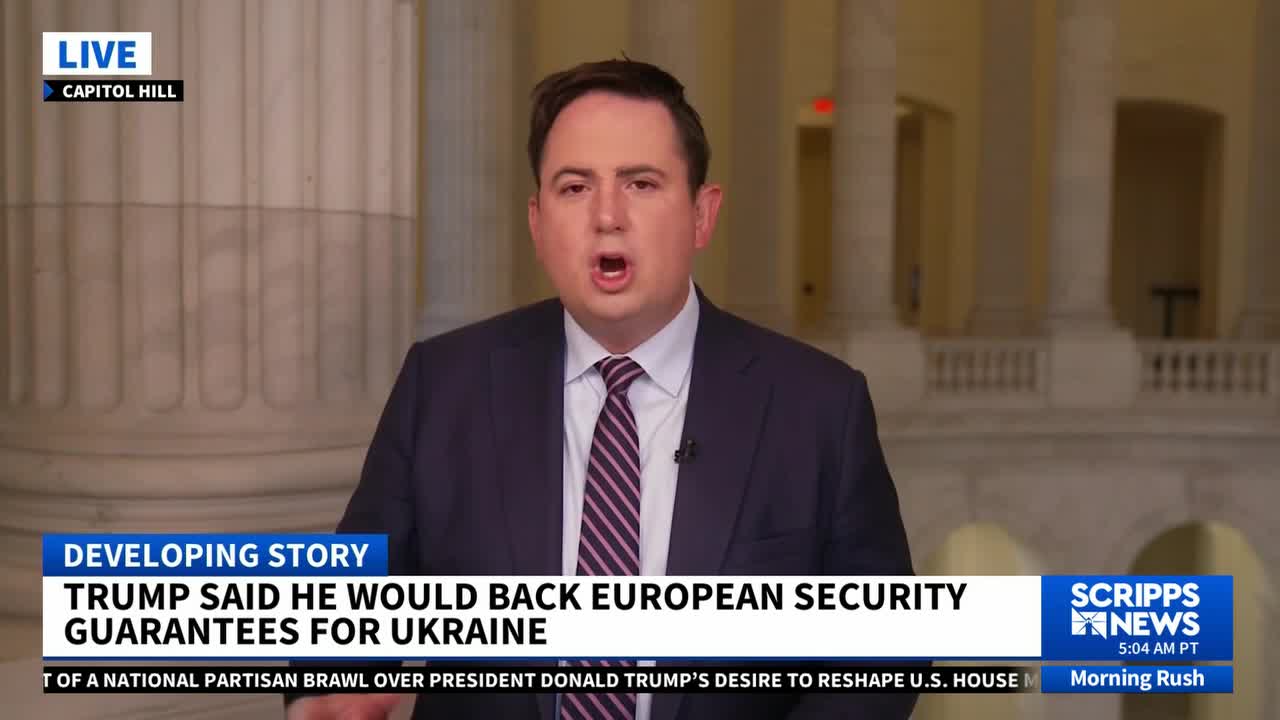In an effort to facilitate an end to the ongoing war in Ukraine, President Donald Trump is working to arrange a high-stakes meeting between Ukrainian President Volodymyr Zelenskyy and Russian President Vladimir Putin. This follows a recent meeting in the Oval Office with Zelenskyy and various European leaders aimed at solidifying support for Ukraine.
Despite the diplomatic efforts, the situation remains dire on the ground. Russian forces carried out their largest drone attack on Ukraine since July, launching a total of 270 drones and 10 missiles overnight, signifying a stark continuation of hostilities that current discussions do not seem to have mitigated.
Zelenskyy has characterized the recent meeting in Washington as “significant” and indicated a willingness to engage in a bilateral meeting with Putin. Following his discussions with European leaders, Zelenskyy expressed optimism about the direction of peace talks.
“I believe it is a good result,” he stated, suggesting a trilateral meeting could follow, contingent on the outcomes of discussions with Putin.
RELATED STORY | Trump, Zelenskyy plan a meeting with Putin to pursue peace in Ukraine
European leaders, in light of the ongoing conflict, have gathered to address potential security guarantees for Ukraine in the event of a peace agreement. The discussions touch on critical issues, including territorial disputes and commitments to prevent future aggression from Russia. While specific agreements have yet to be reached, the prospect of military bases or increased troop presence in the region is under consideration.
As efforts progress toward a potential meeting between Zelenskyy and Putin, questions remain regarding the location and the feasibility of such a summit. Analysts indicate that Putin may be hesitant to travel to Europe, possibly necessitating a neutral venue such as Turkey or the United Arab Emirates.
A warrant has been issued for Putin's arrest by the International Criminal Court, which most European Union members have signed onto.
While some officials express optimism about the possibility of a meeting, the Kremlin has not confirmed any arrangements, leaving the timeline for direct talks uncertain. German officials suggested that a meeting could take place within the next two weeks, but this hinges on Putin's willingness to engage.
Adding to the complexity, the recent drone attacks highlight the ongoing violence that overshadows diplomatic discussions. The urgency for a ceasefire was echoed by German Chancellor Friedrich Merz, who emphasized the need for an immediate pause in hostilities, a sentiment not widely echoed by other leaders during their discussions.
The international community continues to monitor the situation closely, particularly as the outcome of these negotiations may have broader implications. Observers question whether the dynamics of the Ukraine conflict could inform similar geopolitical tensions, notably concerning China's claims on Taiwan.
As the world awaits a significant development in the talks, the climate of uncertainty around the peace process raises critical questions about the future of Ukraine and regional stability.
This story was initially reported by a journalist and has been converted to this platform with the assistance of AI. Our editorial team verifies all reporting on all platforms for fairness and accuracy.




